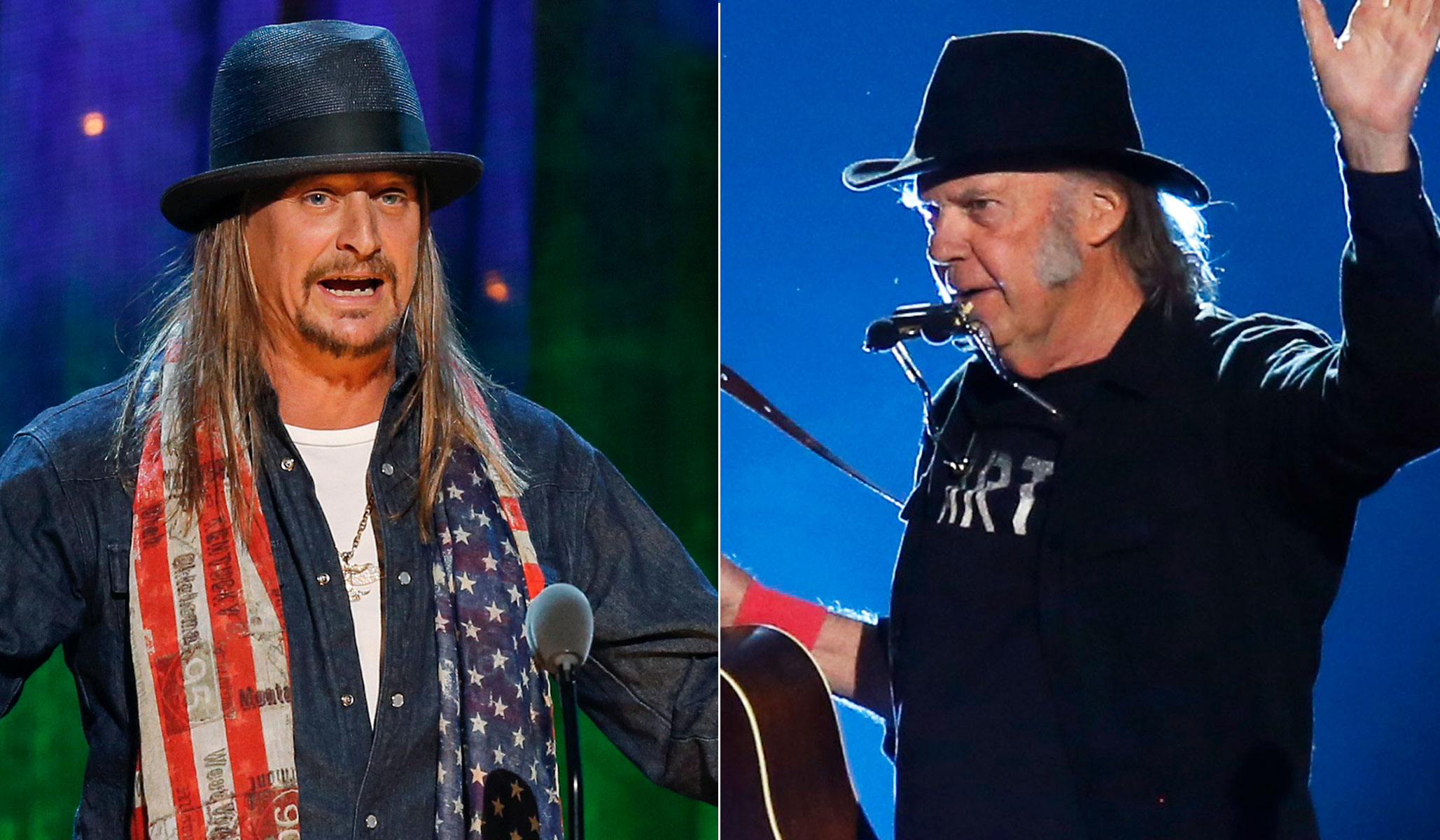
A salvo that is American pop music’s 1st indicator of riot
The strongest lyric on Child Rock’s new single “We the People” is 235 decades old: “In purchase to kind a far more best union / Do ordain and create this Structure of the United States of The us.”
Nothing at all else on this recording is as powerful, since most of Child Rock’s music resorts to crude profanities. But the rationale why is quick to understand. On the day Kid Rock introduced his tune, rock-new music veteran Neil Younger publicly threatened Spotify with an ultimatum: Possibly get rid of its broadcast of the political commentator and comic Joe Rogan, or he’d remove his new music from its streaming provider. It’s enough to make a real rock and roller revolt.
But the synchronicity is a jolt. “We the People” troubles rock-songs orthodoxy, specially the authoritarian stances taken by popular, set up rock stars these as Neil Youthful, Bruce Springsteen, and the Rolling Stones, who no for a longer period behave like the counterculture figures they at the time seemed.
In this unexpected ideological skirmish, Kid Rock needs to reclaim populism and protest from Young’s imperious assertion of authority and restricted expression.
Child Rock’s unabashed vulgarity forsakes the training and eloquence of the Founding Fathers but no much less than congressional rule-breaking at the moment does. That is for the reason that “We the People” — terms taken from the preamble of the Structure — is based mostly on the common performing-class anger that the Constitution is routinely flouted by the people today who have sworn to defend it. The anger has been mounting since the Covid lockdowns, nevertheless mainstream media vilifies it.
Kid Rock reminds listeners that their ire — because of to emotion distant from and unrepresented by their governing administration, the media, and other public institutions — can obtain justification in the Structure.
Rock’s “We the People” delivers itself as a gesture of American defiance, exclusive and important throughout this era when the concept of defiance and independence seems forgotten: Sides are picked primarily based on the frustrations of partisanship and the realization that neither side has served its fellows well. Lots of artists are concerned to declare their defiance and so choose compliance — with the lockdowns, the mandates, and the industrial enjoyment field position quo.
In terms of rock-and-roll rebel, a cultural revolution has taken area — in reverse. Kid Rock’s unexpected problem to Neil Younger — serendipitous potentially but correctly timed ideologically — responds to this sea alter in terms very similar to a singalong manifesto. As a single of the to start with white rappers to display screen both equally aptitude and authenticity with hip-hop during its Nineties peak, Child Rock (Detroit’s Robert James Ritchie) revives the hip-hop apply of the “beef” concerning warring artists.
With “We the People’s” call-and-reaction composition and choral utterances of the Constitution by itself, Rock’s record seems like possibly a rally or a sports activities celebration. It trades the mellifluous, blues-rhythm knowledge of Van Morrison’s groundbreaking, radical anti-lockdown epic, Hottest Music Venture, Vol. 1, for the raucous excitement of the individuals.
There is no require to fake that Kid Rock has manufactured a good history on the amount of Morrison or his have “Bawitdaba” or “Picture,” but the song’s effrontery is tremendously rousing. It syncs with the dismay expressed by a Neil Younger critic: “Imagine, an historic, decrepit hippie wants to bend the community data and belief stream to his will. This is what the Left is all about now, fascist manage and enslavement to their blinkered ideology.”
Mainstream media make no space for Rock and Younger to argue. Their “discourse” can just take position only via competing statements and gestures due to the fact Youthful and his ilk are so pampered by the mainstream media that they believe their decrepit-hippie ideology retains sway and however has power. Kid Rock never availed himself of white rockist privilege, as I stated in Droppin’ Science. But Rock’s daring exposes the actuality that Youthful, irrespective of his confirmed artistry (“Like a Hurricane,” Comes a Time, Tonight’s the Night) was never a rebel but a trend follower whose moment (“Ohio,” Rust Never ever Sleeps) has passed. Sure, a transient time in between society wars created the lovely, singular Americana Are You Passionate? and Greendale, but now it’s disappointingly distinct that Young’s facile politics frequently lacked moral foundation.
Kid Rock’s constitutional-background song expresses righteous indignation. Though resembling an act of civil disobedience, “We the People” is most spectacular as an act of cultural dissent. Pursuing Morrison’s illustration with his individual music posing Morrison’s urgent query “Where Have All the Rebels Gone?” Rock asks: Where are the American people?
Don’t forget in Taxi Driver when Albert Brooks complained about a misprinted marketing campaign button: “It’s not ‘WE are the People’ but ‘We ARE the Folks!’” It satirized a mistaken hollow, meaningless assertion with a intelligent, insistent reminder. Kid Rock prompts a overlooked sense of self-regard. “We the People” is a salvo in Millennial American pop music’s initial act of rebel.